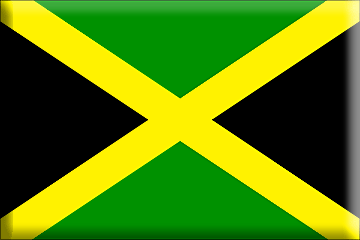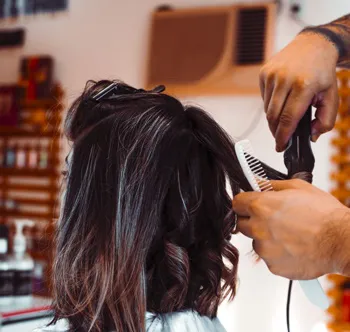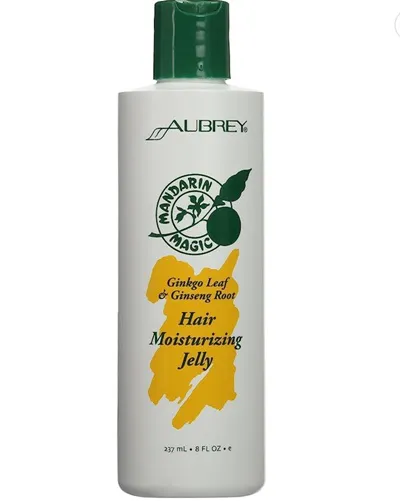The Spin Interview: 50 Cent (Bigger, Longer, and Uncut)
By: Charles Aaron
July 6, 2007
Thanks to Don Imus, hip-hop is now under a new microscope. But 50 Cent offers no apologies. With bonus content!
50 Cent / Photo by Dan Winters
What follows is an unabridged version of the story that appears in our July issue.
For the moment, 50 Cent is preaching to the choir. While a gaggle of
assistants and security personnel lounge around a Manhattan recording
studio, their multiplatinum benefactor discourses on how violent films
like Scarface and GoodFellas have a greater potential negative impact
on kids than hip-hop does. "That's right, uh-huh," echoes G Unit capo
Tony Yayo, like a grumpy, possibly armed Ed McMahon.
Then, suddenly, 50 walks over, puts his face an inch away from mine and says, "Ask me if I'm a role model?"
Are you?
"No, but I'm inspiring to people." He grins and turns away, inscrutable point apparently made.
With the delayed September release of his third album, Curtis, the
rapper born Curtis Jackson on July 6, 1975, in South Jamaica, Queens,
is desperately hoping to inspire a downloading public that is
purchasing far less music than when he released his first two albums --
2003's Get Rich or Die Tryin' and 2005's The Massacre, which sold
almost 20 million copies combined. Curtis' first two singles ("Straight
to the Bank," "Amusement Park") have yet to become the soundtrack of
the summer. His acting career, though busy of late -- the war drama
Home of the Brave with Samuel L. Jackson, prison-boxing flick The Dance
with Nicolas Cage, and drag-racing vehicle Live Bet -- has met with
critical yawns. And even though the G Unit empire (a stable of rappers,
a clothing line, shoe deal, books, video game, a recently sold stake in
VitaminWater) earned $41 million from June 2005 to June 2006, 50 knows
that if he wants to remain "rap's MVP," as he boasted on the hit single
"Hate It or Love It," he has to stay as edgily focused as ever.
You're 32 now, and as you get further away from life on the street,
does it get harder to reconcile who you are on record with who you are
in real life? On the new album, you still rap about cooking crack and
shooting people, but you've been living in a mansion in Connecticut.
Your experience is your life; the things you go through make you who
you are. So I've spent four years being what people call "successful,"
and all the rest of my life not having it. And maybe because of that,
the painful moments are more visible in my memory. If I'm writing about
the environment I grew up in, then guns are gonna be goin' off. Now
they haven't gone off around me in real life as much as they have in my
music because I haven't been able to capture real life perfectly in my
music. A lot of my songs are like a record that's skipping. I've been
repeating these scenarios until I do them perfectly.
That gunshot sound has been going off on your records since well before Get Rich or Die Tryin'.
That's what I hear when I think of where I grew up. And it also comes
from the experience of me being shot. It's weird -- people associate me
with gun violence, when I was the one who got shot. I haven't ever shot
anybody.
But everybody thinks you have.
Why?
Well, you've said so in interviews, both directly and indirectly, and you rap about it all the time.
That's an assumption; there's no proof I've ever shot anybody. What I
think scares people about me is that I was shot nine times, and I'm
okay with that. I accepted it and moved on, and it didn't slow me down.
Being shot wasn't the most painful experience for me, anyway. The most
painful experience was not knowing what I was going to do with my life
after my record company didn't accept my phone calls anymore [Columbia
dropped 50 in 1999 after the shooting].
That must have been devastating. You made this amazing record [Power of
a Dollar] and you're excited to put it out, and then you're in the
hospital and the album's shelved.
It was terrible. I was mad. I was scared.
And since you were shot in the mouth, you didn't know if you were gonna be able to rap again.
My voice was completely different. I had my teeth knocked out of the
whole side of my mouth, and my tongue got bullet fragments in it. But
it's funny -- this is the voice that everyone enjoys now. It's made me
think that maybe it was God's plan, maybe I was supposed to be shot,
because after that, I signed a publishing deal [with EMI] on my
hospital bed. They gave me a $100,000 advance. But then they dropped me
because they didn't realize I'd been shot in the face and might not
physically be able to perform. They used it as a tax write-off, but I
lived off that $100,000 during the time period when I was hurt and
couldn't do music and provide for myself.
Did you have to completely rethink the way you rapped because of the
injury? Before, your voice had more eagerness and intensity to it.
Everything changed. My mind frame changed. When all those things happened, the fun went out of my music.
When you recorded the songs for Power of a Dollar, were you convinced you were going to make it big?
I felt like I was ready in 1997 when I was writing music with Jam
Master Jay. But I was so far from being ready. In '99, I put out "How
to Rob" [the barbed single in which 50 threatens to clean out "industry

,"
from Diddy to DMX to Wu-Tang to Timbaland) because Columbia wasn't
understanding what I was trying to do creatively, and it just took off.
It was almost taboo to mention names on a record after Tupac and Biggie
got shot; nobody wanted that type of friction.
It was controversial, but it was also funny. Rappers aren't known for
having a good sense of humor about themselves, though. What did you
expect would happen?
I knew people would misinterpret it, and they did. But for me, there
was no Plan B. I absolutely had to be a success in music. The only
thing positive in my life was music, so I said what I needed to say. I
mean, the lyric on the record is: "This ain't serious / Being broke
will make you delirious." So if somebody wants to take it seriously,
then they just want to misinterpret it, or they're just really

' stupid.
There were several times on Power of a Dollar when you stepped back and said that you weren't serious.
I don't do that anymore because the intention has changed. When I was
in the early phase of my career, I was at a desperate point. My entire
company had no idea who I was, and that was me trying to make them
understand, but they just didn't get it. But what they provided for me
was a functioning record company that I could learn from. I'd get up
every morning and go to Columbia like I had to go to work. I'd go see
my product manager and learn what his responsibilities were. I'd go
hang out in the street department and see how they did mix-show radio,
and then learn the responsibilities of the A&R [team]. I'd be up
with the art director, watching what he did. I was the intern who
couldn't get sent to the store for coffee. [Laughs] They gave me the
information that was necessary for me to know what to do when they
dropped me.
You've said that the new album, Curtis, is partly about you going back
and exploring how you felt before you were even known as 50 Cent, when
you were a little kid.
I wrote and recorded lyrics for this album at my grandmother's house
again. I went back in the basement, where you have to bend down the
ceiling is so low, where I wrote Get Rich or Die Tryin'. Being in that
environment helped me remember things. I had to dig deeper. I'm not
actually in that lifestyle; it's not surrounding me as much as it did
prior to Get Rich.
What is it about that time that you are trying to capture?
Those points where I was more vulnerable. After I've been a success, there hasn't been that much vulnerability for me.
What kinds of vulnerabilities?
Well, when I was younger, I experienced being beaten up. You know,
that's actually what brings out the aggression I have now. When I was
ten years old, my mom had already passed, and I'd get into physical
altercations. I'd get jumped. To me, after my mom passed, everything,
literally, that went wrong, went wrong because she wasn't there. If I
wanted to go to the park, and it would start drizzling, it was
happening because my mom wasn't there -- because everything good came
from her.
But she was a drug dealer?
Like I say on the record, "My mom told her baby boy the Lord was gonna bless us / Then dope bought us the

that food stamps wouldn't get us / And they don't understand we were just trying to make it / But where I'm from when you want

you gotta take it." Only a child would think that the Lord's blessing
would be dope. The innocence of that line is the significance in it. My
mom hustled, so everything I experienced having that was nice came from
her making that decision. She didn't she see welfare or Burger King as
a real option. She did what she thought she had to do to take care of
me.
You haven't ever really written about your own family -- your son, Marquise, or his mother.
You know why I wouldn't do it? Because it would be hard for me to make
reference to her without being disrespectful. [50 has been feuding in
court over child support with Marquise's mom, Shaniqua Tompkins.] Say,
if my mom was using drugs, I would probably lose respect for her. But
if someone else was disrespectful to her, I would respond immediately.
And my son has so many of my qualities that I feel like he would feel
the same way, even if it was his father saying it. He would find some
resentment toward me for saying something bad about his mother, so I
don't talk about it.
That's much different than how Eminem has handled it.
I got no comment on that. But also, my son's mom had a daughter before
me, and I've never really talked about her because I wanted to allow
her to have a relationship with her dad. She's gone down South to see
her father on vacation in the summer, and I'll call and ask her if
she's having fun, and she'll say, "No, not really." And I'll say,
"Why?" and she'll say, "Because he's cheap." And that really bothered
me because he's not cheap; he's not cheap at all. He just doesn't have
what I have. And that's, like, damn, I can remember being where he is.
It seems like there's more difference between Curtis Jackson and 50 Cent than you let on.
50 Cent is the aggressive portion of Curtis, and because of the musical
content, there's a perception that I'm darker than I am. That's why I
enjoy film projects, because they allow me to show emotions that I
don't normally show through my music. Hip-hop is such a competitive art
form, so anything you put out that makes you vulnerable, puts you in
danger, because other people are gonna use those statements and things
against you, to discredit you later.
How does it feel to release your record in this post
 Forum Home
Forum Home






















 ,"
from Diddy to DMX to Wu-Tang to Timbaland) because Columbia wasn't
understanding what I was trying to do creatively, and it just took off.
It was almost taboo to mention names on a record after Tupac and Biggie
got shot; nobody wanted that type of friction.
,"
from Diddy to DMX to Wu-Tang to Timbaland) because Columbia wasn't
understanding what I was trying to do creatively, and it just took off.
It was almost taboo to mention names on a record after Tupac and Biggie
got shot; nobody wanted that type of friction.





